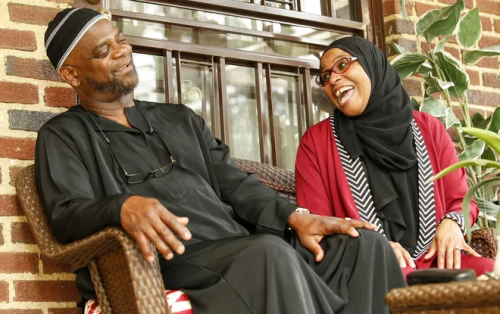Owning property is one of the best ways to build wealth and secure a lasting legacy. In Uganda, many people choose joint ownership—whether with a spouse, business partner, family member, or friend—to make property investment more affordable and manageable. But while joint ownership has its perks, it can also lead to complicated legal and financial issues if not handled correctly.
So, is joint ownership the right move for you? Let us break it down.
Types of Joint Ownership in Uganda
Before diving into specific scenarios, it’s important to understand the two main types of joint property ownership in Uganda as stated in the Registration of Titles Act Uganda under section 56:
1. Joint Tenancy – This means all owners have equal rights to the entire property. If one owner passes away, their share automatically transfers to the surviving owners.
2. Tenancy in Common – Here, each owner holds a distinct share of the property. If an owner dies, their share is passed on according to their will or Uganda’s intestacy laws rather than automatically transferring to the other owners.
Choosing the right structure can make all the difference, depending on your long-term goals and who you are co-owning with.
Joint Ownership appears in different contexts;
Marriage and Joint Property Ownership
Marriage is one of the most common scenarios for joint ownership. Uganda’s Constitution and the Land Act (Cap 227) recognize spousal property rights, ensuring that matrimonial property is protected.
Why it works:
1.Provides financial security for both spouses.
2.The right of survivorship simplifies inheritance matters.
Potential issues:
1.If the marriage ends in divorce, disputes over who owns what can get messy.
2.One spouse might attempt to sell the property without the other’s consent.
Pro Tip: The Land (Amendment) Act, 2004, requires spousal consent before selling matrimonial property. If you are married, consider a prenuptial agreement or proper documentation to clarify ownership contributions.
Business Partners and Joint Property Ownership
For business owners, co-owning property with a partner can be a smart way to expand operations while sharing costs.
Why it works:
1.Allows businesses to acquire valuable assets without overburdening one individual.
2.Reduces financial risks by spreading responsibility.
Potential issues:
1.If one partner wants to exit, negotiating a fair buyout can be tricky.
2.Disagreements over the property’s use or sale can slow down business operations.
Pro Tip: Always have a partnership agreement or a memorandum of understanding (MoU) specifying ownership terms, responsibilities, and an exit strategy.
Friends Buying Property Together
Pooling resources with friends to buy land or rental property is an emerging trend in Uganda. But friendship and finance do not always mix well.
Why it works:
1.Makes property investment more accessible.
2.Shared costs for taxes, maintenance, and development.
Potential issues:
1.If one friend wants to sell, conflicts can arise over valuation and exit terms.
2.Different visions for the property’s use can lead to disputes.
Pro Tip: Draft a co-ownership agreement outlining each person’s share, contribution, and terms for selling or exiting the arrangement. Opting for tenancy in common ensures that each person’s share can be passed to their heirs.
Family Joint Ownership
In Uganda, family land is often jointly owned—sometimes formally registered, other times informally held under customary law.
Why it works:
1.Preserves family wealth for future generations.
2.Shared responsibility in land development and maintenance.
Potential issues:
1.Succession disputes, especially when one family member wants to sell and others refuse.
2.Lack of formal documentation leading to legal battles.
Pro Tip: To avoid future conflicts, families should officially register property ownership and consider setting up a family trust to manage shared assets.
The Risks of Joint Ownership
While joint ownership has clear advantages, it also comes with some risks:
- Lack of autonomy: Every major decision requires agreement from all owners.
- Financial liability: If one owner defaults on a loan tied to the property, co-owners may be forced to cover the debt.
- Inheritance complications: Without proper planning, property succession can turn into a legal nightmare.
- Forced sales: If one owner wants to sell and others don’t, the situation can lead to costly legal battles.
How to Protect Your Interests in Joint Ownership
Thinking of co-owning property? Here are some smart steps to safeguard your investment:
- Choose the Right Ownership Structure – Understand whether joint tenancy or tenancy in common best suits your needs.
- Put Everything in Writing – A written agreement should clarify ownership shares, financial responsibilities, and exit strategies.
- Consult a Professional– Legal advice ensures compliance with Ugandan property laws and protects your rights.
- Register the Property Properly – Make sure all owners’ names are listed in official land records, while clearly reflecting whether it is a joint tenancy or tenancy in common.
- Plan for the Future – Draft wills or trusts to ensure smooth inheritance and prevent disputes.
Joint property ownership can be a great way to build wealth and secure your financial future—but only if done right. Whether you are buying with a spouse, business partner, friend, or family member, clear documentation and legal safeguards are key to avoiding headaches down the road.
Need expert advice on estate planning, property agreements, or succession planning? Talk to a professional estate planner or financial advisor today. Your legacy depends on the decisions you make now!
Disclaimer: This blog post is for informational purposes only and does not constitute financial or legal advice. Always consult with a qualified professional for personalized guidance.













